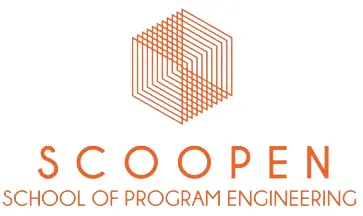A Comprehensive Overview of Amazon Web Services (AWS)
AWS (Amazon Web Services) is an Amazon company offering governments, businesses, and people access to on-demand cloud computing platforms and APIs (Application Programming Interfaces) on a metered pay-per-use basis. Amazon.com has been instrumental in developing internal infrastructure for managing its online retail activities, making its foray in 2006. These cloud computing web services taught in AWS Course in Pune, in other words, AWS Training in Pune, provide software tools, distributing computer processing capacity by AWS server farms.
What is AWS?
AWS denoting Amazon Web Services imparted at AWS Classes or anywhere, in its entire form, is a platform providing scalable, adaptable, user-friendly, and affordable cloud computing solutions. Amazon Web Services, in short form, AWS is a comprehensive, dynamic cloud computing platform provided by Amazon that juxtaposes infrastructure as a service (IaaS), platform as a service (PaaS), and packaged software as a service (SaaS) solution.
When did AWS start?
Amazon has introduced AWS in March 2006, making it the very first major and prominent cloud vendor available on the market thereby benefitting every aspect in the sphere of business and IT landscapes.
What is AWS used for?
AWS constitutes more than 200 services, denoting that it can be employed for plenty of different things such as:
- Store files like screenshots, videos, and others for easy access.
- Host websites like running web and app servers.
- Build applications such as designing the next hit and ‘it’ game or must-have web application.
- Manage your database by employing MySQL, PostgreSQL, Oracle, etc. for storing data.
- Decipher content to a global audience quickly and affordably.
AWS taught at the AWS Course in Pune, also encompasses services of machine learning, artificial intelligence (AI), e-commerce, blockchain, Internet of Things (IoT), and analytics.
Who uses AWS technology?
Every industry from startups and SMEs to enterprises as well as public sector organizations employ AWS for every use case imaginable. Enterprise-scale users like Netflix, Twitch, Facebook, BBC, ESPN, Airbnb, McDonald’s, and Ticketmaster constitute at least 10% of the total. As per Gartner’s latest estimations, AWS gets the tag of being the most popular cloud provider enjoying 33% market share.
Important Cloud Services provided by AWS:
Compute The computer services in AWS taught in AWS Classes in Pune, or anywhere in India, are all about top-of-the-line servers used for hosting a website, processing backend data, etc.
- AWS EC2 (Elastic Compute Cloud)-An infrastructure as a Service from AWS providing a server within the desired operating system, processor, and RAM. With this OS, one can install applications and host websites.
- AWS Elastic Beanstalk-Platform as a Service provides rapid application deployment by offering all application functions one requires.
- AWS Lambda – This service doesn’t grant access to the entire operating system and can be used for backend processing.
Networking:
- Amazon VPC – Enables you to build a private network employing many of the same concepts and design elements being an on-premises network.
- Amazon Route 53-This cloud-based Domain Name System (DNS) web service Amazon Route 53 accounts for reliability and scalability.
Storage:
- Amazon S3 – AWS, taught in AWS Training in Pune, provides scalable storage solution called Amazon Simple Storage Service (S3), saving files in the form of objects, with each only up to 5 TB in size.
- Amazon Glacier – Offers safe, dependable, and incredibly affordable storage possibilities for data archiving and long-term backup.
Databases:
- Amazon RDS –Relational database can be easily set up, run and operated, and scale in the cloud via Amazon Relational Database Service (Amazon RDS).
- DynamoDB-NoSQL database service supporting data and key-value pairs, point-in-time recovery, on-demand backup, and restorations.
What are the Benefits of AWS?
- Organizations use well-known programming languages, operating systems, databases, and architectural models offered by AWS.
- AWS provides only a few clicks for quickly deploying applications across multiple locations worldwide.
- An affordable service enables you to pay only for the services used by you without making any upfront or long-term commitments.
- Data Centre operation & maintenance costs are not necessary for you.
- Requires highly secure infrastructure for ensuring data security.
- Ability to quickly process large volumes of data known as high-performance computing (HPC).
- Scalable because AWS Auto Scaling service provides constrained resources to be expanded automatically in response to demand.
Why use AWS?
- Easy usage
- Flexibility & Functionality
- Cost-effective
- Security
- Performance & scalability
- Reliability
How can AWS help businesses grow?
AWS entails outstanding start-up support and services, including AWS Activate, a program offering training and hands-on ways to obtain the resources needed to build, launch, and grow a brand-new business. Employing AWS, start-ups, and enterprises bigwigs can boost up their online presence via Elastic Beanstalk, a product enabling users to create web apps, host websites, and create and register domains for websites. In terms of storage, AWS offers companies and businesses of any stature, the amount of storage it requires precisely, supporting big data. Companies can quickly and conveniently scale any big data apps constituting data warehousing, clickstream analytics, fraud detection, recommendation engines, serverless computing, and IoT processing.
Why is AWS so popular?
As per reports, Amazon Web Services (AWS) accounts for 31% of the cloud market-55% more than Microsoft Azure and 44% more than Google, its two biggest competitors and corporate rivals, the reasons for its astounding popularity are:
- First to market in its cloud computing platform, building up a solid customer base with little or no competition.
- Grade-A features accounting for easy-to-use, reliability, and cost-effectiveness, amping up the scalability factor.
- Vision involving a deep understanding of its customer base employing cloud services so that companies can develop new services and infrastructures.
How to get started with AWS?
AWS Fundamentals Specialization available on Scoopen, is segregated into four distinct parts:
- Going Cloud Native involving AWS core services & infrastructure.
- Addressing Security Risks when building apps on AWS.
- Migrating to Cloud constitutes a transfer of the current workload to AWS.
- Building Serverless Applications for building & serverless applications usage.
AWS Certifications Courses:
- [NEW] Ultimate AWS Certified Cloud Practitioner CLF-C02
- AWS Certified Solutions Architect-Associate
- AWS Certified DevOps Engineer Professional 2024 DOP-C02
- AWS Certified Developer
- AWS Certified SysOps Administrator
- AWS Certified Database
- AWS Certified Advanced Networking
- AWS Certified Security
- AWS Data Analytics
- AWS Certified Machine Learning
AWS Training Courses & Tutorials:
- Cloud Fundamentals
- Developer & Architect Training
- AWS for Networking
- Certification Exams
How long does AWS take to implement?
The time needed for AWS implementation varies in keeping with the scale of project and the company’s requirements:
- 0-6 months (20%)
- 7-12 months (27%)
- 13-18 months (20%)
- 19-24 months (16%)
- 25-30 months (5%)
- 31-36 months (7%)
- 37+ months (5%)
Popular AWS Products & Services:
- Amazon RDS
- AWS Lambda
- Amazon S3
- Amazon Virtual Private Cloud
- Amazon SNS
- AWS Compute Optimizer
- Amazon CloudFront
- Amazon SQS
- AWS autoscaling
- Amazon ElastiCache
- AWS Elastic Beanstalk
- Amazon Elastic Block Store
- AWS IAM
- Database
- Amazon DynamoDB
- Amazon Aurora
- AWS Config
- Amazon Kinesis
- Amazon Redshift
- AWS Organizations
- Amazon EC2
- Amazon VPC
- Amazon CloudWatch
- Amazon Elastic Compute Cloud (EC2)
- Amazon Elastic Container Service
- Amazon Elastic Container Registry
- AWS App2Container
- Amazon Cognito
- AWS Elasticsearch
- Amazon Sagemaker
- Amazon Athena
- Amazon Elastic MapReduce
- Amazon Elastic Load Balancing (ELB)
- Analytics
- Amazon QuickSight
- AWS Data Pipeline
- AWS Glue
- Amazon EBS
- Amazon Machine Instance (AMI)
- Amazon Machine Learning
AWS Storage Options:
- Amazon FSx
- Amazon Simple Storage Service
- File Storage
- AWS Backup
- Object storage
- Amazon S3
- Amazon Glacier
- EBS
- Tape Gateway
- Amazon Elastic Block Store
- Elastic file system
- AWS Storage Gateway
- AWS Snowball
- EFS
- AWS DataSync
Disadvantages of AWS:
• One must opt for paid support packages if he/she requires more intensive or immediate help.
• The expense of technical support varies depending on various packages constituting those for developers, companies, and enterprises.
• For Amazon EC2 and Amazon VPC consoles, restrictions are there on the available resources. However, one can ask for an increase in the same.
• Resources of AWS imparted at AWS Course in Pune, are limited to default AWS restrictions, which tend to differ by location. These resources are generally made up of snapshots, volumes, and photographs.
• When you go to the cloud, Amazon Web Services may have encountered certain cloud computing issues or concerns. For instance, downtime, limited control, and backup protection.
How much does AWS cost?
The cost of implementing AWS cloud services taught in AWS Training in Pune or anywhere, depends on the scale and nature of companies’ day-to-day requirements, offering a highly flexible and cost-effective pricing structure, and operating on a pay-as-you-go model across all its services. However, the best, feasible way to calculate estimated costs or expenses is by using Amazon’s price calculators.
What kind of support is available for AWS customers?
- ‘How to’ queries about AWS services and features
- Best practices for helping you to successfully integrate, deploy, and manage applications in the cloud
- Troubleshooting APIs & AWS SDK issues
- Troubleshooting operational or system problems with AWS resources imparted in the AWS Course in Pune or elsewhere
- Issues/concerns with Management Console or other AWS tools
- Problems Detected by Health Checks
- Many third-party applications like OS, web servers, email, databases, storage configurations.
Learn and master AWS taught in AWS Course in Pune at Scoopen School of Program Engineering, located at Dhankawadi, Pune India, imparting courses and training in AWS DevOps, Business Analyst, Python Data Science, SAP SD MM HANA, Machine Learnings, Database Power BI, SQL, PLSQL, Micro.Net, Angular JS, Java Course, Soft Testing, providing biggest competitive Cloud Analytics and Automation platform in Pune. Established in 2011, Scoopen School is counted among the topmost Computer Training Institutes, equipped with best-in-class professional, experienced teachers and instructors having sound technical knowledge in structures and project management, teaching students in an easy-to-understand style and presentation. Scoopen School of Program Engineering is bestowed with accolades of Excellence Award Winner in 2016, 2017 & 2018 in Multiple technologies by PROGVALTON TECH for its outstanding proficiency making way for future prospective growth.
To book your slots click here.


